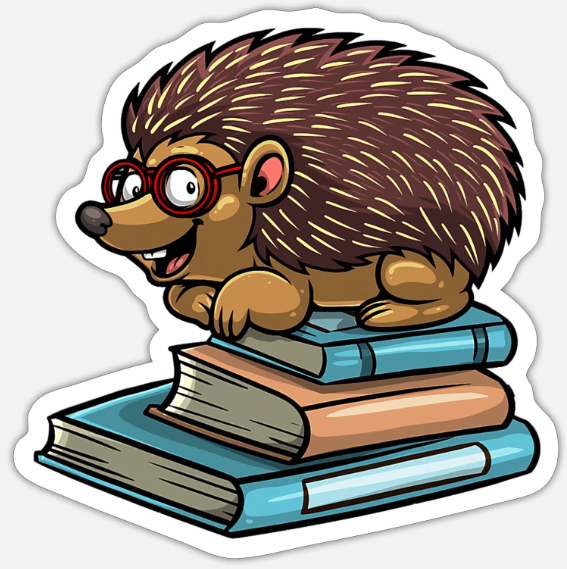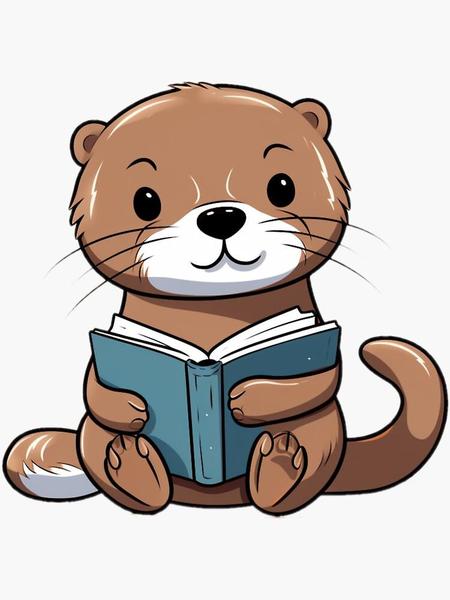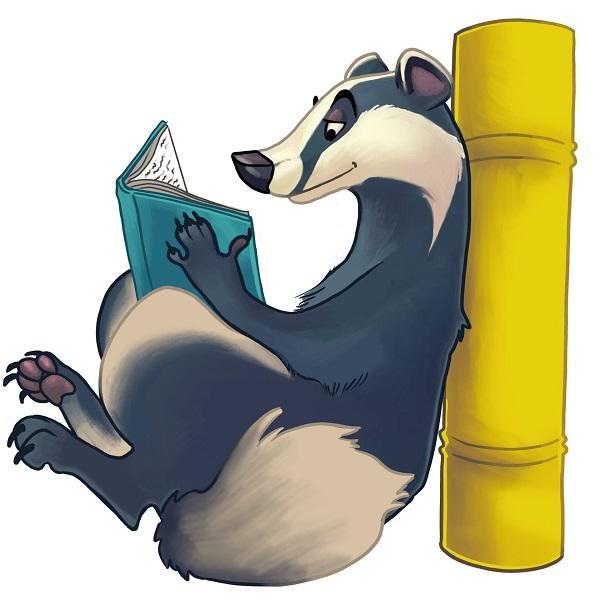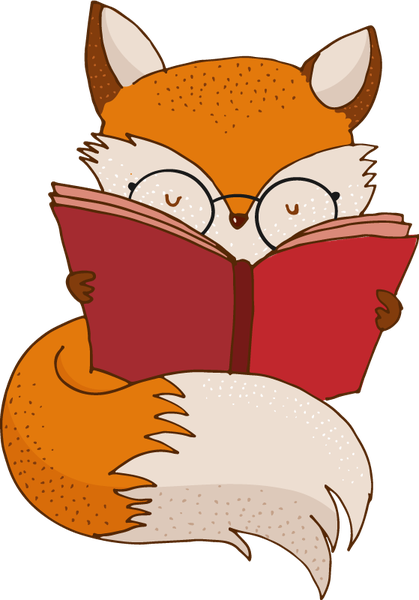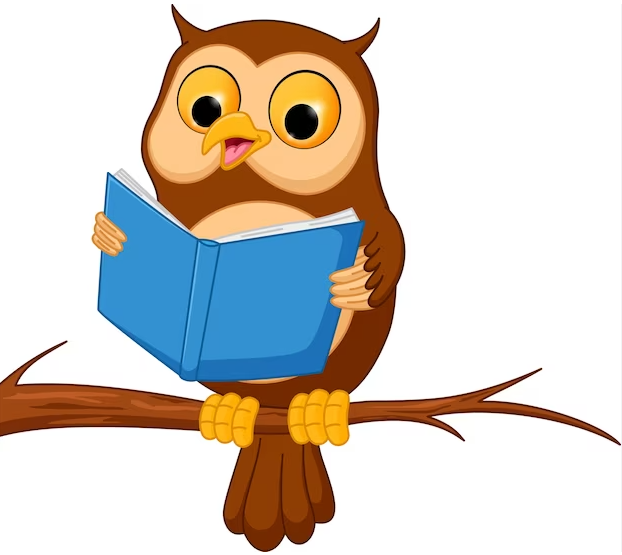English Lead: Ros Baker
Reading Lead: Charlie Squibb
Our Curriculum Intent
At Trent Young’s we believe that a quality English curriculum should develop children’s skills in, and love for reading, writing and discussion. We aim to inspire an appreciation of our rich and varied literary heritage and a habit of reading widely and often. We recognise the importance of nurturing a culture where children take pride in their writing, can write clearly and accurately and adapt their language and style for a range of contexts. We ensure that children develop a secure knowledge-base in all aspects of English. National Curriculum requirements form the basis of our teaching. These are broken down into smaller chunks of learning in our curriculum documents.
Our Curriculum Implementation
Our curriculum closely follows the aims of the National Curriculum for English 2014.
- The national curriculum for English aims to ensure that all pupils: read easily, fluently and with good understanding
- develop the habit of reading widely and often, for both pleasure and information acquire a wide vocabulary, an understanding of grammar and knowledge of linguistic conventions for reading, writing and spoken language
- appreciate our rich and varied literary heritage
- write clearly, accurately and coherently, adapting their language and style in and for a range of contexts, purposes and audiences
- use discussion in order to learn; they should be able to elaborate and explain clearly their understanding and ideas
- are competent in the arts of speaking and listening, making formal presentations, demonstrating to others and participating in debate.
- Genres for both reading and writing are mapped across the school to ensure children experience a wide range during their time at Trent Young’s.
- Knowledge and skills for reading, writing, spelling and grammar have been planned so that there is a clear progression across key stages, and across the school.
- Our vocabulary strategy gives details of tier 2 words (academic vocabulary) to be used and learned by each year group.
- Curriculum offers for every subject give details of tier 3 words (subject specific vocabulary) to be used and learned by each year group.
- Spelling and grammar is taught both discretely and as part of reading and writing lessons.
Our Curriculum Impact
We strive to ensure that our children's attainment is in line or exceeds their potential when we consider the varied starting points of all our children. We measure progress and attainment using a range of methods:
- Moderation of writing within school and with other schools using assessment criteria for each year group, adapted from Somerset Literacy Network;
- Ongoing assessment in lessons, which informs planning and the setting of children’s individual targets
- Weekly spelling tests
- Termly reading, and grammar and spelling tests
- Self and peer assessment.
Writing
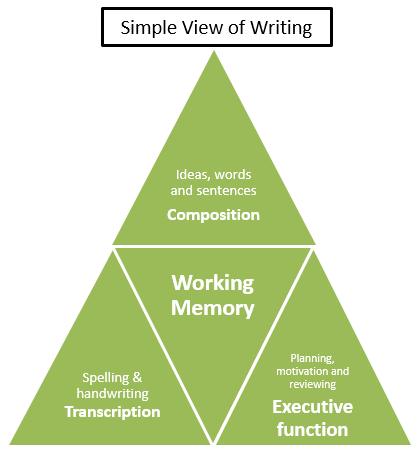
Writing is a complicated practice that relies on both motor skills and cognitive skills; pupils have to orchestrate spelling, handwriting, accurate sentence structure, linguistic choices and textual cohesion. At Trent Young's we approach writing through the 'simple view of writing' designed by researchers into best practice, and to focus on the three concepts in writing. We recognise that despite the title of the simple view of writing, writing is a complex and increasingly demanding task as children progress from novice to expert to disciplinary writers.
- Transcription: We believe that for children to be successful writers they need strong accurate and fluent foundations in spelling and handwriting. We follow the Little Wandle Letters and Sounds Revised SSP programme, which provides the basis for strong teaching of phonics and letter formation in EY and early KS1. This grows into the progression model for transcription knowledge across the school.
- Composition: We recognise that to compose our writing successfully we need an increasing knowledge of vocabulary, language, grammar and its effects, text and sentence structures.
- Executive Function: We recognise that despite the title of the simple view of writing, writing is a complex and increasingly demanding task as children progress from novice to expert to disciplinary writers. Executive function is our ability to self-regulate through writing tasks, allowing us to plan, sustain our attention and stick to our learning goals. As part of the writing process, use metacognitive questioning throughout our writing lessons to support pupils to plan, monitor and evaluate their approaches, supporting both their executive function and their self-regulation.
Transcription
At Trent Young's we believe that for children to be successful writers they need strong accurate and fluent foundations in spelling and handwriting. We follow the Little Wandle Letters and Sounds Revised SSP programme, which provides the basis for strong teaching of phonics and letter formation in Early Years and early Key Stage 1. This grows into the progression model for transcription knowledge across the school.
Spelling
In Year R and 1 children follow the Little Wandle Letters and Sounds Revised SSP programme - more information about this and ways to support children at home can be found here.
Children in Year 2 move onto Little Wandle Spelling, which builds on children's knowledge of the alphabetic code and teached them how to spell with confidence. The programe provides a seamless link from the core Little Wandle programme to teaching spelling in Year 2.

Beyond the SSP, children continue to apply phonics as their main strategey whilst developing their awareness of alternative spellings, etymology (where words orginate from) and morphology (how words are structured, such as adding prefixes and suffixes). In KS2 we use 'no nonsense' spelling to guide the teaching and learning alongside the National Curriculum and identified common errors made by the children.
Handwriting:
At Trent Young’s CE School we build solid foundations in letter formation through our systematic, synthetics phonics teaching programme, this teaches children the shape and orientation of letters. We then use PenPals handwriting programme to support children to become accurate, fluent writers.
The process of writing needs explicit teaching and modelling to children with thoughtful small steps built up over a sequence of lessons to support early and novice writers, in order that children will be able to write independently with success. Whilst children are in the early-novice writing phase, we believe that it is vital that focussed teaching time is given to practice and master the components of handwriting – detailed below. Children need to practise handwriting under the guidance of an adult to ensure accuracy and avoid habits which will be difficult to undo later. Children are expected and held account for accurate letter formation, including size, orientation and relationship to the line. Once accuracy is achieved, children are taught to become faster fluent writers through considering their sizing and orientation before learning how to accurately join and write at speed legibly.

Composition
At Trent Young's, we recognise that to compose our writing successfully we need an increasing knowledge of vocabulary, language, grammar and its effects, sentence structures and audiences to write for (genres). The substantive knowledge that we teach is ambitious, informed by the national curriculum and organised into key concepts.
Executive Function
Executive function is our ability to self-regulate through writing tasks, allowing us to plan, sustain our attention and stick to our learning goals. At Trent Young's, we use metacognitive questioning throughout our writing lessons to support children to plan, monitor and evaluate their approaches, supporting both their executive function and their self-regulation. We also include here in our thinking, motivation to write. Children need to pursue writing excellence in the context of having all the necessary building blocks to write well. We believe that all children can write with success.

Phonics
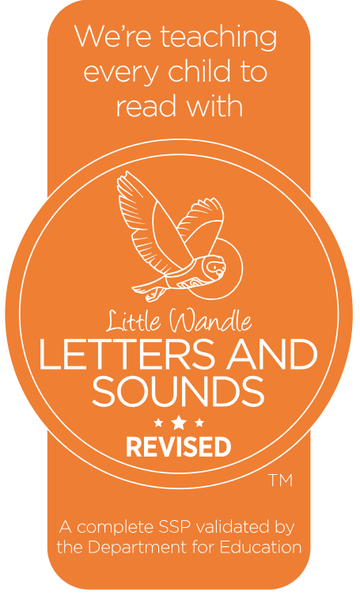 We use the Little Wandle Letters and Sounds Revised to plan and provide daily engaging phonics lessons. In phonics, we teach children that the letters of the alphabet represent a different sound, that these can be used in a variety of combinations and are put together to make words. The children learn to recognise all of the different sounds and combinations that they might see when they are reading or writing. Our phonics teaching starts as soon as the children start school in Reception and follows a very specific sequence that allows our children to build on their previous phonic knowledge and master specific phonic strategies as they move through school. As a result, all our children are able to tackle any unfamiliar words that they might discover. At Trent Young's we also model these strategies in shared reading and writing both inside and outside of the phonics lesson and across the curriculum. We have a strong focus on the development of language skills for our children because we know that speaking and listening are crucial skills for reading and writing in all subjects.
We use the Little Wandle Letters and Sounds Revised to plan and provide daily engaging phonics lessons. In phonics, we teach children that the letters of the alphabet represent a different sound, that these can be used in a variety of combinations and are put together to make words. The children learn to recognise all of the different sounds and combinations that they might see when they are reading or writing. Our phonics teaching starts as soon as the children start school in Reception and follows a very specific sequence that allows our children to build on their previous phonic knowledge and master specific phonic strategies as they move through school. As a result, all our children are able to tackle any unfamiliar words that they might discover. At Trent Young's we also model these strategies in shared reading and writing both inside and outside of the phonics lesson and across the curriculum. We have a strong focus on the development of language skills for our children because we know that speaking and listening are crucial skills for reading and writing in all subjects.
How we teach phonics and Early Reading (Early Years/Reception and KS1)
- In Reception and Year 1 children follow the progression within Little Wandle Letters and Sounds Revised programme. Phonics is taught daily and there is a review session each Friday.
- Phonics starts in Reception in week 2 to ensure the children make a strong start.
- By the end of Reception, children will have been taught up to the end of Phase 4.
- By the end of Year 1, children will have been taught up to the end of Phase 5.
- Children in Year 2 recap any gaps in their phonics knowledge in the Autumn Term.
- Reception lessons start at 15 minutes, with daily additional oral blending – increasing quickly to 30 minutes.
- Year 1 lessons are 30 minutes long.
Reading practice sessions
- Children across Year R, Year 1 and Year 2 (and beyond if appropriate) apply their phonics knowledge by using a full matched decodable reader in a small group reading practice session.
- These sessions are 15 minutes long and happen three times a week.
- The sessions follow the model set out in Little Wandle Letters and Sounds Revised.
- The children then take the same book home the following week to ensure success is shared with the family.
- In Reception these sessions start in week 5. Children who are not yet blending take a wordless book home.
How do we assess phonic knowledge?
- In Year R, Year 1 and Year 2 at the end of each week there is a review session which recaps the learning. There are also whole review weeks (pre-planned and bespoke review weeks to address gaps identified by the class teacher’s ongoing formative assessment).
- Children identified in Reception, Year 1 and Year 2 at risk of falling behind are immediately identified and daily ‘keep up’ sessions are put in place – these sessions follow the Little Wandle Letters and Sounds Revised programme.
- In Reception and Year 1, the children are assessed at the end of every half term using the Little Wandle Letters and Sounds Revised assessment tracker.
- Children in Year 1 complete the statutory Phonics Screening Check in the Summer Term.
- Children who do not meet standard in the Phonics Screening Check in Year 1, will complete this in Year 2. Support continues to be put in place for these children.
Reading for pleasure – Reception, Year 1 and Year 2
Alongside daily teaching of phonics, reading for pleasure is an important part of our Early Reading offer. We ensure children develop a love of reading and are exposed to a range of interesting and relevant authors. We promote a love of reading in the following ways:
- Teaching of poetry, which includes performing and learning a range of poems by heart
- Daily story time
- Whole class reading sessions which include a range of books that are mapped out to ensure children have a rich reading diet, vocabulary is explicitly taught and children can learn key phrases in the book
- Book areas within the classroom which have a careful selection of books, including books by the focus author
- Alongside children’s decodable reading book, children also take home a reading for pleasure book each week. In each year group, children will take home a range of book by authors, including some which they have read in class.
Supporting your child with reading
Although your child will be taught to read at school, you can have a huge impact on their reading journey by continuing their practice at home. There are two types of reading book that your child may bring home:
- A reading practice book. This will be at the correct phonic stage for your child. They should be able to read this fluently and independently.
- A sharing book. Your child will not be able to read this on their own. This book is for you both to read and enjoy together.
Reading practice book
This book has been carefully matched to your child’s current reading level. If your child is reading it with little help, please don’t worry that it’s too easy – your child needs to develop fluency and confidence in reading.
Listen to them read the book. Remember to give them lots of praise – celebrate their success! If they can’t read a word, read it to them. After they have finished, talk about the book together.
Sharing book
In order to encourage your child to become a lifelong reader, it is important that they learn to read for pleasure. The sharing book is a book they have chosen for you to enjoy together. Please remember that you shouldn’t expect your child to read this alone. Read it to or with them. Discuss the pictures, enjoy the story, predict what might happen next, use different voices for the characters, explore the facts in a non-fiction book. The main thing is that you have fun!
Useful Information
Programme Overview Reception and Year 1.pdf
Year R
Parents and carers! If you have bought the Little Wandle at Home Phonics Flashcards don’t forget to check out four fun games to play with your children on the Collins website.
- Your child's reading journey - Reception Autumn Term.pdf
- Help sheet with graphemes and phonemes for Year R Autumn 1.pdf
- Pronunciation guide Autumn 2.pdf
- Pronunciation guide - Spring 1.pdf
- Tricky Words for parents - Year R Phase 2.pdf
- Nursery rhymes videos
Year 1
Parents and carers! If you have bought the Little Wandle at Home Phonics Flashcards don’t forget to check out four fun games to play with your children on the Collins website.
Reading

Click on each year group below to find recommended reads from The Reader Teacher - these also include hyperlinks for buying them online.

